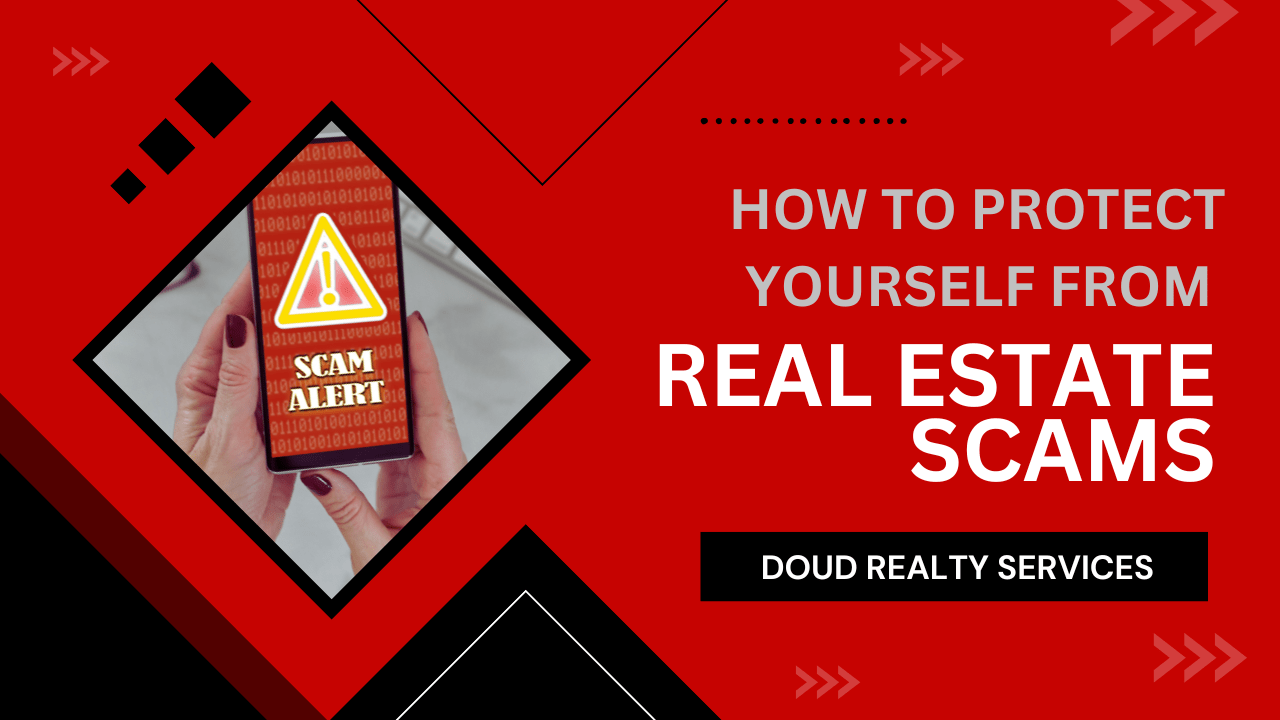Most of us can spot a scam before we fall for it, right?
Right.
But, the scammers are getting smarter. And we can only be so vigilant. If you’re renting out property in Hampton Roads, you’ve probably noticed that real estate scams and rental fraud have become increasingly prevalent, posing significant risks to landlords and real estate investors.
Understanding how to protect yourself is crucial to safeguarding your investments and ensuring long-term success in the industry. You want to protect the pool of tenants in Hampton Roads, too, who are looking for an attractive, affordable place to live and can easily be drawn in by rental amounts that seem too good to be true.
We’re talking about how to protect yourself from the real estate scams that are showing up in Hampton Roads and throughout rental markets across the country. This isn’t just a problem for individual landlords and tenants; it’s an industry-wide problem that needs all of us to be smart and strategic.
Understanding Real Estate Scams
What are we watching out for?
Real estate scams can take many forms, especially today with technology making it easier for people to pretend to be someone they are not. You’ll find scams in real estate ranging from fraudulent listings and fake tenants to deceptive property management companies.
Rental fraud specifically targets landlords by using deceitful means to gain access to properties or financial information. These scams can result in significant financial losses, legal issues, and damage to your reputation as a landlord.
Common Types of Real Estate Scams
As Hampton Roads property management experts, we’ve been studying real estate scams in order to better protect our owners and tenants. Here are some of the most common types of situations to watch out for.
Identity Theft
Scammers may pose as prospective tenants using stolen identities to secure rental agreements. They might then use the property for illegal activities or sublease it without your knowledge. They may never pay rent, and wait out the eviction process for as long as possible.
Fake Listings
Scammers create fake property listings to collect deposits or application fees from unsuspecting renters. This not only affects potential tenants but can also tarnish the reputation of legitimate landlords if their property details are misused. You might be surprised to find a listing that uses your photos and description but has different contact info. This indicates someone has stolen your property identity in order to steal money from tenants.
Overpayment Scam
In this situation, a scammer sends a check for more than the required amount, usually claiming it was a mistake. They then request a refund of the excess amount before the check bounces, leaving you at a loss.
Fraudulent Management Companies
You may run into scammers who pose as property management firms, offering their services at attractive rates. Once hired, they may collect rent from tenants without passing it on to you, or charge exorbitant fees for nonexistent repairs.
The Impact on Hampton Roads Tenants
Real estate scams not only jeopardize landlords but can also have severe consequences for tenants. When prospective renters fall victim to fraudulent listings or scams, they may find themselves without a place to live after paying deposits or rents for non-existent properties.
This often leads to serious emotional distress as tenants grapple with the shock of losing their hard-earned money and facing the uncertainty of their housing situation. Additionally, those who unknowingly rent from fraudulent landlords face a number of scary issues, such as unexpected evictions or living in unsafe conditions.
Scams also create an environment of distrust in the rental market, making it challenging for honest landlords and tenants to engage in business peacefully. There’s already a damaging perception that landlords and tenants are supposed to be at odds. When scammers get involved, it’s more likely that tenants will feel antagonistic towards landlords and those who are renting out homes will approach tenants with suspicion.
As you can see, there are serious ripple effects of real estate scams that significantly impact the broader rental community. Illegal activities and dishonest people undermine stability and trust.
The Impact on the Rental Market
The prevalence of real estate scams not only affects individual landlords and tenants but also has far-reaching consequences for the overall rental market, as we just mentioned. When scams become common, they create an atmosphere of distrust among prospective tenants, who may be more hesitant to enter rental agreements or engage with property owners.
This decline in trust can lead to reduced demand for rental properties, as individuals seek alternative housing solutions or choose homeownership over the risk of renting. We have also seen legitimate landlords experience increased vacancy rates thanks to scams. They have difficulty attracting quality tenants in a market where no one believes anything, leading to potential financial instability.
Even worse is the negative publicity surrounding scams. These dramatic stories can tarnish the reputation of an entire market, making it challenging for reputable landlords to maintain occupancy levels and rental prices. As scams proliferate, they may also cause regulatory bodies to implement stricter rental laws and guidelines, which can burden landlords with heightened compliance requirements and additional operational costs.
Ultimately, the impact of real estate scams reverberates through the rental market, hindering growth, jeopardizing investments, and disrupting the essential balance between landlords and tenants.
Tips to Protect Yourself from Real Estate Scams
So what can you do, as a landlord who wants to avoid scams and show prospective tenants that they can be trusted? We have some ideas.
1. Verify Tenant Information
Always conduct thorough background checks and screenings on potential tenants. This includes verifying their identity, reported income, and credit history. Use trusted tenant screening services to gather accurate information and confirm the legitimacy of their application. Even better, work with a Hampton Roads property management company that has the technology and experience to ensure the tenants applying for your property are who they say they are.
2. Use Secure Payment Methods
Avoid accepting cash payments or wire transfers. Instead, use secure payment platforms that offer protection against fraud. Encourage tenants to pay through these channels to minimize the risk of overpayment scams. Even written checks are easily manipulated. People can steal accounts and routing numbers.
3. Conduct Regular Property Inspections
Once tenants are in place, make sure you’re establishing and maintaining a good relationship with those residents. Performing regular property inspections can help you detect unauthorized subletting or misuse of your property. Schedule inspections in advance and adhere to local tenant laws regarding privacy and notice.
4. Work with Reputable Property Management Companies in Hampton Roads
When you partner with a property management company, ensure they have a solid track record and positive reviews. Verify their credentials and ask for references from other landlords to confirm their reliability.
5. Keep Detailed Records and Document Everything
Maintain accurate records of all transactions, communications, and agreements with tenants and property management companies. This documentation can provide valuable evidence in the event of a dispute or legal issue.
6. Report Suspicious Activity
If you suspect fraud, report it immediately to local authorities and real estate associations. Prompt reporting can help prevent further scams and protect other landlords in your community.
Legal Recourse for Landlords
When faced with real estate scams, landlords have several legal avenues to pursue in order to protect their interests and seek justice.
Documenting all interactions and transactions related to the scam is critical, because those thorough records serve as essential evidence in any legal proceedings.
Gather your documentation and consider filing a police report. By doing this when you have been a victim of fraud, you will have a formal complaint, and it also helps law enforcement in identifying and addressing broader issues within the community.
File a civil lawsuit against the scammer to recover lost funds if you discover their identity with the help of police.
Seeking counsel from attorneys who specialize in real estate law can provide valuable advice concerning the best course of action. Filing claims with local fair housing agencies or consumer protection offices may also help you address the fraudulent practices you have encountered.
Finally, joining local landlord associations and professional organizations can provide mutual support and allow you to share information, reinforcing the overall effort to combat real estate scams in the rental market. These are the best ways for rental property owners to assert their rights and work towards reducing their vulnerability in an evolving real estate landscape.
Protecting yourself from real estate scams requires vigilance, due diligence, and proactive measures.
We’re here to help you stay informed about common fraud tactics and to implement the strategies that will best protect you. Let’s talk about how our professional property management services might be put to good use.
 Please don’t hesitate to contact us at Doud Realty Services, Inc. We provide expert property management in Norfolk, Portsmouth, Hampton Roads, as well as surrounding areas such as Virginia Beach, Suffolk, Chesapeake, and Newport News.
Please don’t hesitate to contact us at Doud Realty Services, Inc. We provide expert property management in Norfolk, Portsmouth, Hampton Roads, as well as surrounding areas such as Virginia Beach, Suffolk, Chesapeake, and Newport News.


